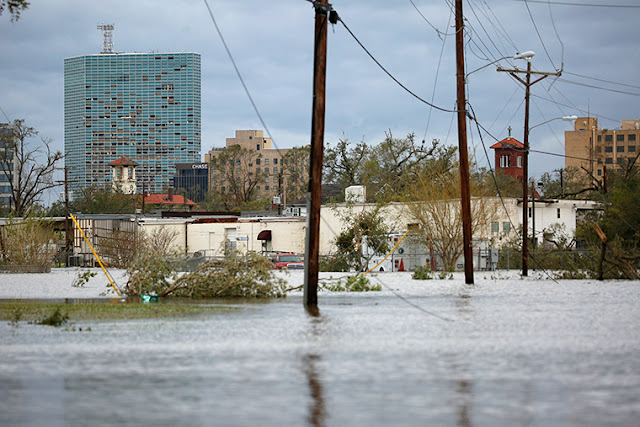Storm Laura batters
Hurricane Laura knocked out most of the water service in Lake Charles, Louisiana, Thursday.
“We’ve got some plants that are open, but it’s not enough to serve the entire city. The pressure is in the single digits,” City Administrator John Cardone told CNN.
Cardone said engineering consultants are coming to the city to help fix the system, which they hope to have to at least 45% capacity on Friday. The problem, according to the city administrator, is not just a loss of power, but also the potential for broken pipes all over the city.
“There were a lot of uprooted trees on private property,” said Cardone. “If they got the water lines on the private property, we’d need to go there and locate it. If people are evacuated, we don’t know where the leaks are.”
The US Centers for Disease Control and Prevention issued a Health Alert Network advisory Thursday warning of the risks of carbon monoxide poisoning in the aftermath of Hurricane Laura, which slammed into the Louisiana coast early Thursday as a powerful Category 4 storm.
The storm has knocked out power to thousands of homes and businesses and people could turn to “alternate power sources such as gasoline generators and may use propane or charcoal grills for cooking,” the CDC said.
“If used or placed improperly, these sources can lead to CO (carbon monoxide) buildup inside buildings, garages, or campers and poison the people and animals inside," the CDC said.
The agency is advising doctors in the hurricane zone to pay attention to symptoms that could be related to CO poisoning. They can include headache, nausea, vomiting, dizziness, weakness, chest pain and altered mental status. Symptoms with no fever with symptoms, a history of exposure or multiple people with similar complaints are red flags for carbon monoxide exposure.
Babies, pregnant women, the elderly and people with chronic conditions, such as anemia, respiratory illness or heart disease are most at risk for CO poisoning, the agency said.
“Appropriate and prompt diagnostic testing and treatment are crucial to reduce morbidity and prevent mortality from CO poisoning,” the CDC said in the health advisory. “Identifying and mitigating the CO source is critical in preventing other poisoning cases.”


